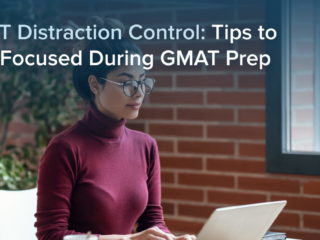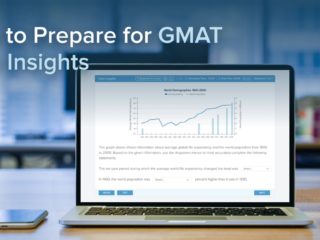| Getting your Trinity Audio player ready... |
If you’re wondering how to prepare for an MBA interview, you’re closer to securing admission — congratulations!
The MBA application process is competitive, and most programs are selective with interview invitations. In this step, business schools are evaluating your communication skills, leadership potential, and cultural fit. Whether you’re interviewing in person or virtually, MBA interview prep can make a significant difference.
In this guide, we’ll discuss interview preparation for MBA admission. Specifically, we’ll talk about the importance of the interview and researching your target program. Additionally, we’ll share common MBA interview questions, prep strategies, and ways to manage interview anxiety. Then, we’ll review what admissions committees look for. Finally, we’ll cover common mistakes, helpful resources, and frequently asked questions.
Here are the topics we’ll cover:
- Understanding the MBA Interview Process
- Researching the Program
- Common MBA Interview Questions
- Preparation Strategies
- Managing Interview Anxiety
- What Admissions Committees Look For
- Common Mistakes to Avoid
- Resources and Tools
- Key Takeaways
- Frequently Asked Questions (FAQ)
- What’s Next?
Understanding the MBA Interview Process
The MBA interview is a critical component of your application. After all, it could be the only time the admissions committee communicates with you in real time. Therefore, it’s critical to make a great impression.
First, it’s important to understand the various types of MBA interviews. The interview type — or format — varies by program. However, the most common types of MBA interviews include:
- Blind interviews: The interviewer has not reviewed your application or resume. For example, UVA Darden’s MBA program conducts blind interviews.
- Resume-based interviews: The interviewer has your resume and asks questions about your experience and goals. For example, UM Ross’s MBA program conducts resume-based interviews.
- Application-based interviews: The interviewer reviews your application and asks specific questions about your experiences and goals. For example, Harvard Business School conducts application-based interviews.
- Group or team-based interviews: Group challenges that evaluate teamwork and communication skills. For example, Wharton’s Team-Based Discussion (TBD) follows this format.
It’s important to know which format will be used by your target MBA programs. Specifically, knowing the format will help you prepare effectively.
TTP PRO TIP:
Research the interview format used by your target MBA programs so you can prepare effectively.
Researching the Program
It’s likely that you’ve researched your target MBA programs. However, it’s important to revisit your research before you interview.
To start, review what inspired you to apply to the program. Additionally, take advantage of available resources. For example, review the program’s website to identify courses, programs, and clubs of interest. Then, chat with students and alums (or review your notes from prior conversations).
TTP PRO TIP:
Identify a few specific areas of interest, such as courses and clubs, to convey your fit for the program.
Common MBA Interview Questions
It’s impossible to anticipate all of the possible questions. However, expect that your interviewer might ask some common questions. Therefore, practice responses to the following:
- Tell me about yourself.
- Walk me through your resume.
- Why do you want to pursue an MBA? Why now?
- Why are you interested in attending this program?
- What will you contribute to the cohort?
- What are your short- and long-term goals?
- Tell me about a time when you demonstrated leadership.
- Tell me about a time when you failed.
- Tell me about a time when you overcame a challenge.
- Tell me about a time when you handled conflict in a team setting.
- What are your strengths and weaknesses?
- What would your teammates say about you?
- What do you enjoy doing in your spare time?
- What questions do you have for me?
This isn’t an exhaustive list, but it’s a good starting point. Review these questions and add your own. Then, practice your responses out loud.
TTP PRO TIP:
Get feedback from a friend or an experienced MBA admissions consultant on your responses to common interview questions.
Preparation Strategies
Practice your responses to the questions above and others like them. Specifically, here are a few best practices to help you prepare:
- Conduct mock interviews — Practice your responses in a mock interview setting with your MBA admissions consultant or a friend. Then, get feedback on your responses. Structure your behavioral responses using the STAR method (Situation, Task, Action, Result).
- Develop your elevator pitch — Work on your introduction: “Tell me about yourself” and “Walk me through your resume.” Specifically, provide the context behind your major decisions and accomplishments.
- Practice your composure — You’ll be evaluated on your non-verbal communication, especially if your interview is in person. Therefore, you should maintain eye contact and good posture. If you need time before responding, take a moment to collect your thoughts.
You might be out of practice with interviews, but preparation will help you interview successfully.
TTP PRO TIP:
It’s OK to take a moment to collect your thoughts before responding.
Managing Interview Anxiety
Feeling nervous and stressed before an MBA interview is normal — we get it! The stakes are high, and you want to make a great impression.
Here are some of our tips for managing interview anxiety:
- Prepare in advance using the tips in this article.
- Get enough sleep the night before your interview.
- Visualize success to bolster your mindset.
- Keep a conversational tone.
The interview is just one aspect of the MBA admissions committee’s evaluation. Remember, the interviewer wants to make a positive impression on you, too.
Following the interview, feedback will be added to your application file. Then, the admissions committee will evaluate your candidacy to make a final decision.
TTP PRO TIP:
Getting enough sleep the night before your interview is key to managing interview anxiety.
What Admissions Committees Look For
As you prepare for your MBA interview, remember what admissions committees are looking for. Specifically, MBA admissions committees seek common qualities and experiences, including:
- Leadership capabilities and potential — Convey your experience through examples of leading projects, teams, and individuals.
- Communication skills — Demonstrate your ability to engage and provide clear and concise responses.
- Problem-solving abilities — Discuss when you leveraged analytical thinking and strategic decision-making skills.
- Program fit — Share your specific interest in the program and why you’re a strong fit.
- Career goals — Describe what you intend to pursue and why you’ll succeed.
[CALL TO ACTION]
If your preparation incorporates these goals, you’ll be in good shape for your MBA interview.
TTP PRO TIP:
Be sure to share your specific interest in the program and why you’re a strong fit.
Common Mistakes to Avoid
There are many ways an MBA interview can falter. Specifically, here are a few common mistakes to avoid:
- Providing generic responses — Make sure you support your responses with specific examples.
- Failing to research the program — Demonstrate your interest and fit for the program by sharing specific examples of courses, programs, and clubs.
- Giving long-winded answers — Ensure your responses are concise but answer the questions.
- Overlooking non-verbal communication — Maintain eye contact with your interviewer and be confident with your body language.
TTP PRO TIP:
Avoid generic responses — provide specific examples in your answers.
Resources and Tools
If you’re looking for a great database of MBA interview questions, consult the forums at Clear Admit and GMAT Club.
You might also want to record your practice using your smartphone or computer. Then, watch or listen to the replay to analyze your responses.
Finally, MBA admissions consultants have a wealth of knowledge of the interview process. Specifically, if you’d like help preparing, reach out to one of TTP’s experienced admission consultants.
TTP PRO TIP:
Record your practice responses and replay them to analyze them.
Key Takeaways
The MBA interview may seem daunting, but an invite is a great sign! Follow the advice in this article to prepare effectively.
Good luck!
Frequently Asked Questions (FAQ)
How long does it take to prepare for an MBA interview?
This depends on your starting point and timeline. However, 2–4 weeks should be enough time.
What types of questions are asked in an MBA interview?
MBA interviewers ask questions about your motivations for pursuing an MBA and your career goals. Additionally, they ask questions about your past experiences. Finally, they may ask random questions about your strengths and weaknesses or your favorite book.
How do I introduce myself in an MBA interview?
Follow the question asked. If you’re walking the interviewer through your resume, start with your undergraduate studies and go from there. Alternatively, if you’re asked about yourself, provide relevant background information. Specifically, talk about where you’re from and how your interests were shaped. In either case, contain your response to 3–5 minutes.
What should I bring to an MBA interview?
If you are interviewing in person, bring a copy of your resume, a notepad and pen, a list of questions to ask your interviewer, and a bottle of water.
How long are MBA interviews?
Interviews typically run from 30–60 minutes. The length of the interview depends on the program.
What to wear for MBA interviews
Wear business attire. Men are advised to wear a suit and tie for in-person interviews. Women are advised to wear suits or business attire (such as suit pants and a professional top).
How to ace an MBA interview
With preparation, clear communication, and composure, you can ace an MBA interview.
What’s Next?
If you need help with interview prep, Target Test Prep’s experienced MBA admissions consultants will shape your strategy and conduct mock interviews.



